AA = Anthony Alayon; NW = Nick Wright
AA: What’s going on, Team Critical Bench Nation? It’s Anthony Alayon here. Today we have a very special guest, Nick Wright. And for those of you who don’t know, he’s definitely got a great YouTube channel. We hand-selected him as being one of the top channels, got a growing fan page and he’s also got a clothing line. So I’m going to go ahead and introduce him right now. Nick, how you doing?
NW: Thanks, Anthony. I’m great. What’s going on Critical Bench Nation? Awesome to be here.
AA: We’re happy to have you. So basically, Nick, why don’t you just go ahead and tell our readers and viewers a little bit more about yourself, how you got started and things like that. What got you to this point?
NW: Well, when I began lifting, officially lifting, freshman year of high school, I was 14 years old. I weighed 104 pounds at the end of the day. I had 11.5 inch arms. I was petite. I was tiny. The funny thing is, I don’t even know if I was aware of just how tiny I was. I kind of had little dog syndrome. I thought I was bigger than I really was, which now I’m grateful for, because it’s what actually drove me to continue pursuing weight lifting even after everybody laughed.
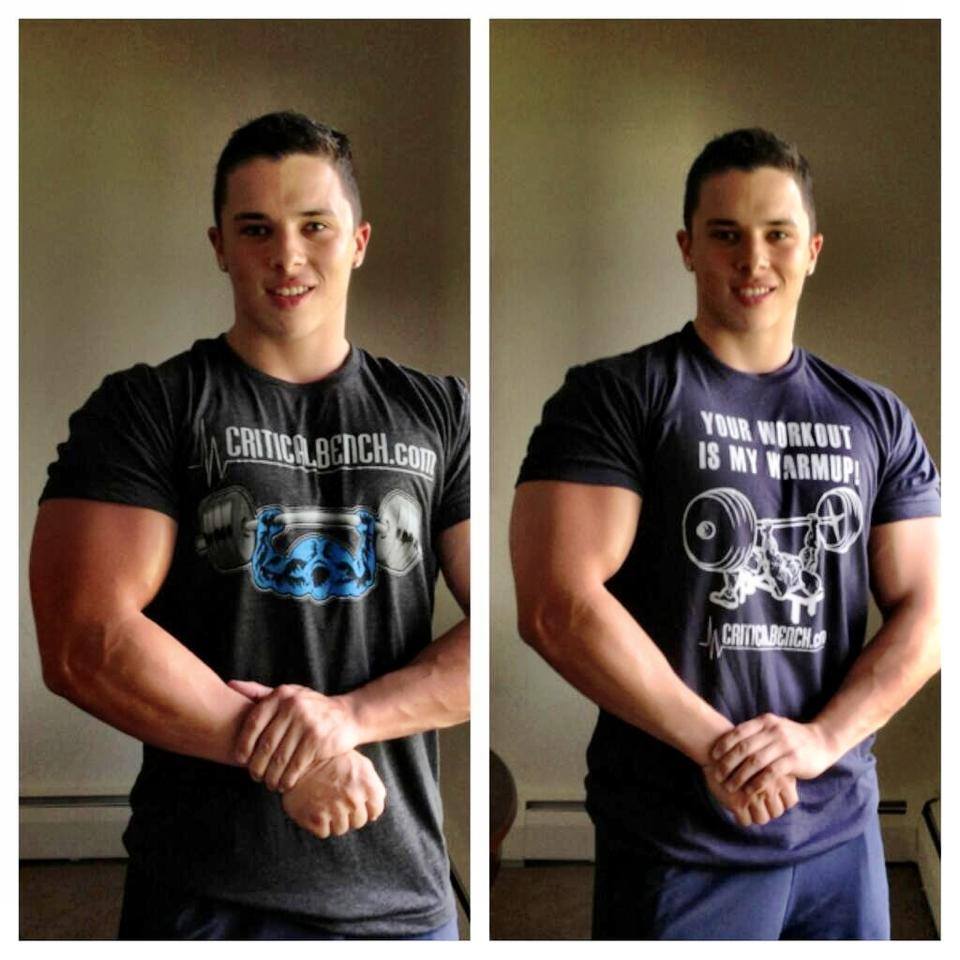
So one day, eventually, actually it was January 16th, 2006, I was watching a true life episode of a bodybuilder training and taking down his measurements. And I decided right then that I wanted also to do the same. So I took all my measurements down and then I began Google searching different bodybuilders. I didn’t even know what the Mr. Olympia contest was. I had just heard of it before. I began Google searching just bodybuilders in general. I stumbled upon Ronnie Coleman, the rest was history. I just became obsessed and infatuated.
I had set a goal to compete as soon as possible. My father is the one who actually talked me into waiting a little bit, because I was tiny, a long time ago. But soon after that, 15 years old, I competed in my very first competition in the teens; placed second in it. Fast forward to now, I’ve done about seven competitions, up to international levels. I’ve won regional-sized shows. I became a sponsored athlete at 18 years old. I got my first magazine cover at 19, becoming the first national teen on a cover. And have been on PBS and FOX quickly for just a couple of little documentary type blogs series, almost documentary style, but they were short.
And then how I began the channel was obviously I love bodybuilding. I love lifting. I love strength and I love the actual sculpting of the physique at the same time. And when I began, there was absolutely nothing online for teenagers and even natural bodybuilders, for that. So I found YouTube, I found out what a YouTube partner was and I kind of became inspired to bring my knowledge, what I had learned, to the public in any way I could. Bring the people something they could relate to, at that time a teen competitor and a natural one at that.
So we began bringing out the videos and breaking down exercises and I found out one thing I really liked doing was breaking down exercises verbally. I guess I do it fairly well, because people always compliment me on that aspect of my channel. Long story short, brought the videos out, brought it mainstream as much as we could, and I’m still just trying to push the whole lifestyle mainstream now.
AA: Interesting. So you basically started fairly young and just kind of kept that momentum, that go-getter, alpha male personality, just taken where you’re at and that’s very impressive. Landing a magazine cover, that’s not something that – very few people can say they’ve done. You know?
NW: Yeah, thank you. I was excited about it.
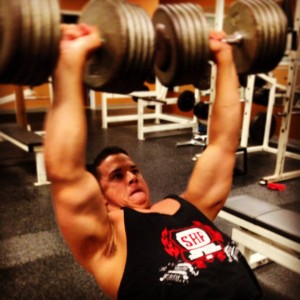
AA: Yeah, it’s a great accomplishment. As far as that goes, you’ve talked about your channel, what they like and things of that nature. Can you tell us, what’s probably the worst workout mistake when it comes to exercising that people make and how to fix it?
NW: Oh, man, I’d have to say besides all the generic mistakes of training the same body group over and over and over again, really I think the most common mistake is simply not knowing how to train, not understanding the biomechanics of a certain lift, of an exercise that you’re doing. And when you’re performing that exercise, not even realizing what muscle it’s supposed to be working or how to feel that muscle working.
So you’ll see somebody trying to squat and the movement itself is barely even activating the quads, you’re not getting deep enough, you’re not – nothing about the actual movement is correct. Nothing about the actual movement is activating the muscle it’s supposed to be moving and it’s simply from lack of understanding the mechanics of the movement and understanding exactly how to feel and tie-in the muscle they’re supposed to be working and targeting. So I would say overall, the biggest mistake is simply not understanding how to properly exercise.
AA: Interesting. That’s something like as far as full range of motion goes, that’s something that doesn’t get discussed too much in the world of bodybuilding. So it’s good that you’re bringing that. I’ve had a bodybuilding background as well, and the one thing they don’t really – it’s more about the pump as opposed to full range of motion.
NW: Right.
AA: That’s a great point. Keeping on the topic of exercise, what do you see people doing? Do you see people over-training when they start out?
NW: Not so much over-training, in fact, I believe the term over-training is over-used, really. Under-recovery might be a better way to put that. And no they’re not the same thing. Some people may ask, isn’t that the same thing? Is under-recovery just over-training? But you can train and train and train a whole lot, and you can still make gains and recover from that. You just need to make sure you’re getting the rest in between.
I don’t think I see too many people over-training so much as I don’t see them training efficiently enough, especially people that don’t know what they’re doing. They come in, they’ll hit the bench press every single day, barely even doing the bench press correctly, actually. Most people don’t even realize how intricate the simple bench press can be if you really break it down. And they’ll move right from bench press to curls and they’ll do a set of curls and then they’ll move from curls to a lat pull-down machine. These are the basic movements that they see and that are pretty self explanatory or that are just the most popular in their gym class. And that’s kind of where it ends. And they’ll do that every single day.
And at that point, it’s not even do much a matter of over-training, even though it’s not good to train the same muscle every single day, it’s also just the simple matter of the fact that you’re not really training efficiently at that point.
AA: Okay. Cool. The last thing I want to touch on training as far as that goes is, what do you think about mobility? Again, going back to my background, mobility isn’t something that people discuss. Is it helpful? Do you do any? Can you elaborate on that?
NW: I’m so glad you actually asked that, because mobility is huge and like you said, it’s not a subject that has been really covered in past years. I feel like it’s just now beginning to see some light. Mobility is everything. In the past we’re always taught that mobility equals flexibility and obviously that will equal you stay limber, you stay healthy, which is true. That’s true.
Unfortunately, and honestly, younger kids, teenagers, even my age, at 22, we’re young enough where we can bounce-back pretty quickly. So we don’t take the whole stretching and staying limber as seriously. When we hear it from everybody, oh, stretching, you’re going to injury yourself, you’re going to tear something. We’re like, yeah, yeah, yeah. I’ll be fine. I’m fine. And that’s obviously bad myth as it is.
One thing that should really be taught about mobility that I think more younger kids would actually grab onto or pay more attention to is how much of a strength increase it can bring to you. If you work on your mobility, say, shoulders for example. Really, really work on your shoulder mobility, your rotator cuff, the tendons, the muscle itself, the straps, the chest/shoulder tie-in, overall mobility of the shoulders. The more you increase that mobility and that flexibility in your shoulders, the more strength you’re going to see. And I have personally noticed that myself upon incorporating more power lifting into my routine, which I’ve been doing lately, I was able to skyrocket my bench press, which has always been my absolute weakest lift, by the way. It took me two years of training to even get 135 on the bar.
AA: Wow.
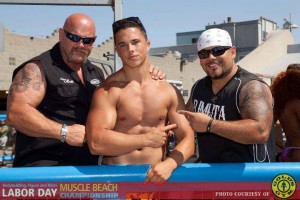
NW: I started off maxing out at 65 pounds, and barely. So by simply working on my mobility, I was able to push my bench press from like 275 – I think I had gotten 315 before, at this point, but it was like only on my best day ever would I get 315, normally 275. I’d get it for a few sloppy reps and that would be it. I began working on my mobility, really, really focusing on it, and I’ll spend a good amount of time every push day now, working on mobility, loosening up my shoulders. And since then, my bench has skyrocketed. In no time flat, I’m up to pushing 345, clean, no spotter needed. And that’s without even really training for power lifting neither.
And now that I’m beginning to focus on power lifting, I’m excited to see how much higher I can get it. But the number one key to my strength gains, on top of just training and eating, has been increasing my mobility and working on shoulder mobility. And that goes for any muscle group.
AA: Excellent. Okay, great. We’ve talked about that. Now, what about nutrition? Bodybuilding has a lot to do with nutrition. Can you tell us what is needed? What’s the mistake people make and how should they be eating?
NW: The mistake a lot of people make, I believe, is focusing on just getting protein in. Now, protein is essential. It breaks down amino acids, it’s what recovers your muscles, obviously. You need protein. And by definition, you need protein to actually survive. It’s essential. But you only need so much protein at a time. I mean, the very rough – I don’t like given this as a guideline – but the rough guideline you can find is around one gram per pound of body weight for an athlete for protein, which is not a whole lot.
People kind of forget the other aspects that go in there. Fats, you need a good amount of fats. A male doesn’t want their fats to go below 20% of the diet if they can help it, because it will start affecting hormones in a negative way. Carbohydrates are essential for energy. You need to get a calorie surplus if you want to put on size. You only need so much protein, you only need so much fat, where’s the rest of those calories going to come from? It’s going to come from your carbohydrates. So you need to make sure you’re getting a well-rounded everything, macronutrients. I wouldn’t just focus on protein. I know it’s inserted in our heads at a young age, but everything: protein, fats, and then of course carbs are your fillers for the end of that.
The other mistake I see people making is beginners trying to overcomplicate nutrition too much. If you’re getting into competing, obviously it’s going to become very intricate. It comes down to a fine science, that’s for sure. But if you’re just beginning, I honestly don’t recommend stressing too much. If you’re just a kid, who’s in average shape, trying to put on size and muscle, don’t stress about exactly what types you’re getting of this and that. Make sure you’re getting in your protein intake and then just focus on eating a lot, because you’re going to get your fats in easily. Everything has fats. If you can focus on getting better fats, like avocados, obviously, your omega 3s, that’s obviously a plus. When you’re just beginning, just eat a lot. Focus on eating, make sure you’re getting all your macro nutrients and that. Get your protein for sure and then just your carbs and your fats and eat a lot, get your fiber in there. You don’t need a whole lot of fiber throughout the day, so a little bit will go a long way. And you’ll be good.
If you’re not putting on size, you’re not eating enough, simple as that. As you get into it more, on a more intricate level, then obviously you want to make sure you get each macronutrient down pat. You would figure out how much protein you want, how much carbs you need, how much fats you need for your body to reach your goal. And then you nail those numbers down and you base your diet around that.
Even the different types of foods, different types of carbs, are over-thought of a lot. Because even something like a sugar, if you’re in a caloric maintenance or you’re in a deficit, a sugar will simply be digested and metabolized as a carbohydrate. It becomes glucose and then it’s stored ultimately as glycogen. Carbohydrates turning into a fat, in novo lipogenesis, doesn’t happen unless all your glycogen stores are maxed out. So basically you’re way overeating, that’s not going to happen.
So the bottom line is, get your proteins, fats and carbs in, get the calories in if you’re starting off. Don’t over-think it.
AA: Right, right. That’s actually what I preach in my newsletter, even at Critical Bench we discuss it. You’ve got to get those macros in. You’ve got to get your macronutrients in. They’re essential and they’re needed for 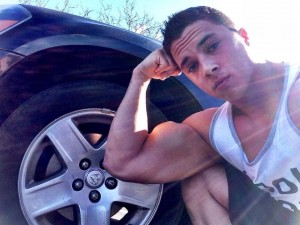 survival, like you said. They’re essentials. That’s a great point.
survival, like you said. They’re essentials. That’s a great point.
Sticking to the topic of nutrition, what is your current nutrition looking like? Are you bulking-up? Are you cutting? Can you tell us?
NW: Definitely bulking. I’m about 192 pounds and I’m at about 5’8”. I think coming from 104 pounds, that’s a good size for me and my frame, being a naturally skinny white kid. Lately, actually the last couple of months, what I’ve been trying to do – since I’ve been stepping away from the stage, I sort of break from competing and I want to go into some power lifting a little bit more. I may or may not compete competitively, I’m not sure yet. But I’m just having some fun with my training right now. And what I’ve found is – I actually went really, really old school for a while. I always track macros. Up until then I was always tracking macros. Even if I was bulking, I’d get my caloric number set, 3,000 calories a day, whatever I was taking in, and I’d have my calories set. And I’d follow that and I’d adjust that as needed.
But lately, the last couple of months, I’ve literally just been taking protein, I just preached about, the old school barbarian approach, the old C.T. Fletcher approach where you just get the calories in. Get the calories in.
AA: Yep.
NW: I’ve been doing this for about six or seven, going on eight years now, seven or eight years now, where I can eyeball my food, I know what I eat. I don’t have a huge variety of what I eat and I can get a ballpark idea in my head of what I’m taking in. So I know like if I’m not taking in enough protein, I know basically what I’m eating, I’ll get in another eight ounces of chicken or something if I’m a little bit lower on protein than I should be.
Or in general, I’m just kind of eat. I’m just eating, I’m not over-thinking it. I’m not even tracking anything right now. I don’t even have my Fitness Pal in my phone, in my new phone anymore. I’m just eating. I’m getting the calories in. I have a ballpark idea of what I’m getting in and I’m making sure I get my protein, my fats and my carbs are definitely up, because I’m eating. So that’s what I’m doing right now.
And honestly, it’s worked amazingly. I think it was a little bit of a break mentally, because I’ve been doing this for seven years. So it was a break mentally, and man, my strength has shot up through the roof, my size is up. It feels good at 5’8” to finally be filling out XLs now, which was – I was always like smalls were big on me when I began. So little things like that, it’s been working amazingly.
I’m a little bit softer right now than I’ve ever been. Some of the comments on my channel will remind me of that all the time. But that’s fine and honestly, I planned for that a little bit. I didn’t mind getting a little bit fluffy. I’m not letting it go too crazy. I’m about to tie it up right now and clean it up, chisel it up just a little bit. But yeah, I gave myself a chance to basically just go old school barbarian. Eat a lot, lift a lot and the gains are amazing.
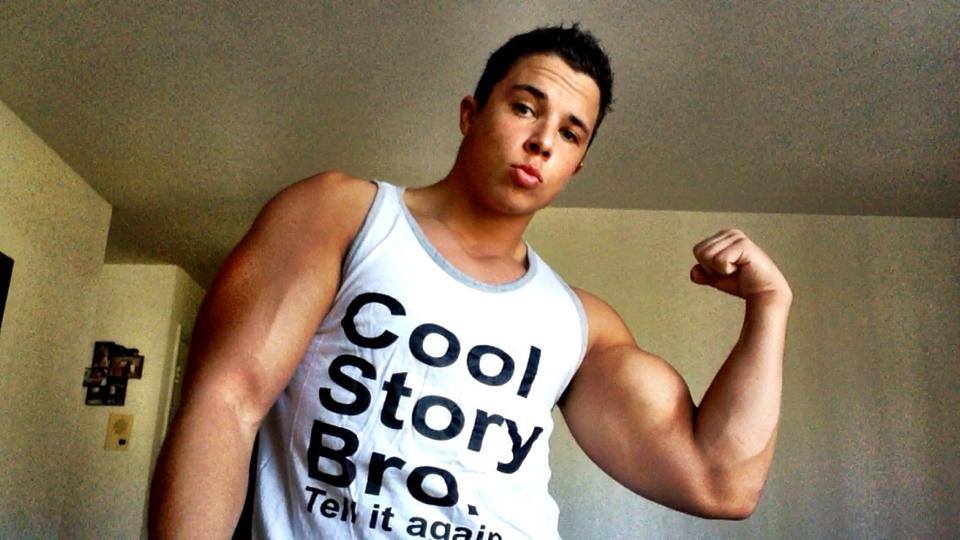
AA: Cool. As far as that goes, we’ve talked about what you’re doing. What can you tell us about supplements? I mean, that is probably the most talked about. Taking supplements, weight gainers, I mean, you’ve got nitric oxide, creatine. If you’d categorize them to the things that are essential, what would you say they are?
NW: So first off, to anybody who’s just looking to get into this working out business, period, forget supplements. First things first. I want to get that, because I want that to be – that should be imprinted in everyone’s head first and foremost. Forget about supplements. And I’m talking about the kids – I’ve worked in different supplements that I’ll do for corporations. I’ve done sales online. I’ve been in every industry and I can’t tell you how many kids I see come into the store, never lifted a weight a day in their life it looks like, don’t even know what a macronutrient is.
They don’t even understand how – they don’t know what a caloric surplus is. They don’t even know how to perform most exercises. They’re not on a training split, nothing. And yet, they’re coming in and asking which supplement will get me jacked.
Supplements are going to do next to nothing for you. There’s very few supplements that are actually efficient. I’ll get into those in a second. Most supplements will do nothing for you, and no supplement that’s over-the-counter, that’s legal and over-the-counter, will actually help you gain muscle. No supplement will do that. So get supplements out of your head. It’s eating. Eat big, lift big. That’s what you need to get down.
Once you have that in your head, you can use supplements as a way of putting icing on the cake, if you will. For example, whey protein – when I say whey protein, I mean any of those genres. Whey protein, it can be a mass gainer; it can be a casein, anything that’s a legitimate protein just in powder form. A meal in powder form, those are good because they’re a meal in powder form. So you’re trying to get calories in, you don’t have a huge appetite, it’s hard for you, you may invest in a mass builder and bam, that’s 1,000 calories by drinking a shake. That’s going to help you out. That’s perfect.
You have to rush in the morning, you don’t have time to make breakfast. Two scoops of whey protein, 50 grams of protein right there. That’s a meal that you just drink really fast. So that’s perfect. Protein powders in any form are never ever a bad idea. Those are great because they are just meals in powder form. Whey is a dairy protein. That’s a real source of food.
After that, the only – that’s all you would really need to rely on, I’d say, because it’s like a food. If you want to get into the more sports area supplements, creatine is about the one and only most proven supplement to work. Creatine, all you need is five grams a day. It’s a very basic monohydrate, micronized monohydrate. Don’t ever let any supplement companies gimmick you with these fancy names. Don’t worry about it, just basic monohydrate, $9 online. Take five grams a day, you don’t need to do a loading phase, you don’t need to cycle on and off it. Five grams a day, keeps your cells saturated. Creatine simply helps the muscle ATP.
When you’re working out for a long time, fat is what gives you the energy. When you’re working out for a moderate time, like a weightlifting session, carbohydrates give you that energy. When you’re doing quick, explosive movements, that’s the creatine. You naturally produce creatine, so keeping the cell saturated, five grams a day, creatine phosphate levels are up, you’re good to go.
Besides that, the only other supplement I use would be a pre-workout, which you may or may not use. If you don’t use them now, you don’t need them. Honestly, I recommend not getting into them. If you do begin using them, you probably found that you kind of rely on them, because it’s like coffee for your workout. Pre-workouts are essentially just a mix of stimulants, caffeine, they might use henbane, just a couple of safe, natural stimulants for you. They’ll have things like beta alanine, which is a precursor and it will essentially – along with the creatine, it will essentially help to prolong fatigue. So if you have beta alanine, that’s what gives you that tingly feeling and that’s going to make it so you’re not fatigued as easily.
The only other one that I’d say is worth mixing in there would be like citrulline mally [phonetic], which is a good vasodilator. That’s your NO2, your nitric oxide, expands the blood vessels, gets more blood flow to your muscles. More blood flow means more oxygen. You get more stamina, basically, more of a pump.
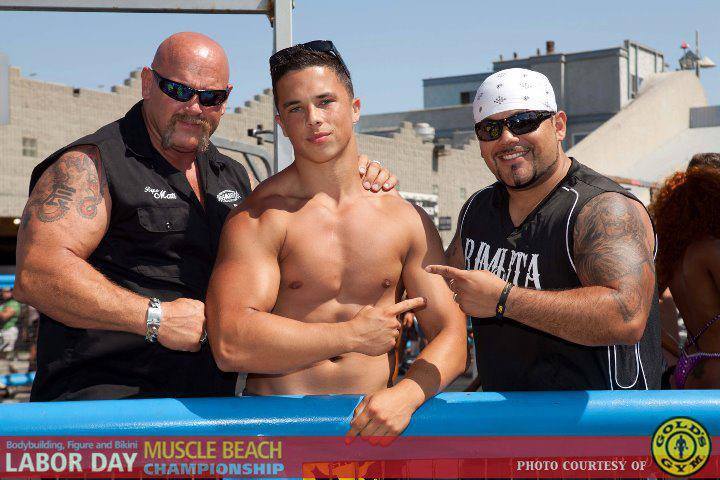
AA: Right.
NW: So that would be it. All your whey protein powders, in any form, mass gainers, et cetera. Creatine, five grams a day, real simple and cheap, and then if you want to do a pre-workout, just consistent with the basics. Your stimulus to energy, your beta alanine, your citrulline mally [phonetic], et cetera.
AA: Absolutely. That’s a great point. There are so many supplements, the latest and greatest. You pick up a magazine and it sounds promising, but you know it’s not really needed. Get the foundation first before you even think about that stuff.
NW: Right. So sum it up, based on that, I’d categorize it like this: if it’s not giving you food or if it’s not giving you energy for something, for a workout, that rapid energy for a workout, don’t take it. Don’t even bother with it. Thermogenics, you may see. They’re the pills you take, will give you some energy and they burn fat. If you want to take those for the sake of energy and curbing your appetite, some of them are all right for that. But they’re certainly not going to burn the fat off of you. Don’t fall into that, either.
AA: Great. I guess one of the last questions I want to ask you is, if someone wanted to follow in your footsteps, just like you were a teen, someone that’s a teen now or just anyone out there in general that wants to get started in bodybuilding, competing. What’s one piece of advice you’d give them, like a mindset a motivation, how you stay motivated and how they could use that tip right today to help them?
NW: Quite simply, you have to want it. You have to want it. And if you’re not in that mind state, then you better figure out ways to make yourself want it. And it may not be the most favorite answer you’re going to hear, but it’s the most honest answer. Honestly, like I said in the beginning of this interview, when I was 104 pounds, I didn’t believe I was. I thought I looked better than I really was. I had this driven, total vision, almost narcissistic mind state that I was better than I was.
Now days, it’s opposite. Now that I’ve actually gained some size and strength, I’m like, I don’t think I look that good. But back then, when I started, I thought I was way ahead and I simply wanted it. I Googled those bodybuilders, I realized what I wanted to do and I was dead-set on competing. And I tell you, at one point, I was always one of those kids that fit-in socially at my school. I was friends with everybody, but at the same time, there was one point where I was literally almost bullied in school. I couldn’t even go to a party and say one comment without somebody turning it into the joke, making fun of me for bodybuilding in some way.
I remember saying one time at a party, “Oh, I was up late last night.” Somebody cut me off, “What were you doing, finger curls?” Everybody started laughing. It was like that. It was crazy. Fast forward, now, I have those same kids going onto my fan page and actually asking me questions pertaining to working out. So I pursued it, kept the friends I needed to keep and I couldn’t be happier right now. I’m doing my thing, literally just because I wanted it.
So don’t focus on other people at all. You need to completely tune other people out. People will only ever give you their opinions and most of the time it’s going to be knocking it you down. It will be saying you’re not cut-out for it; you’re not good enough for it; you look like crap. You shouldn’t do it, it’s not practical. The list goes on and on and on. Don’t listen to people.
Also, don’t listen to other people even when they’re trying to give you positive advice. You should bulk for this long and then jump on this show. Or, you shouldn’t do a show. Yeah, you should wait here. No, forget that. Get into your own head and stay there. Do what you want to do. If you want to train, train. If you want to body build, body build, and if you want to do a show, do a show whenever the heck you want to do a show. And you’re going to have the most fun that way. And you’ll find through having fun you’ll end up finding your success in bodybuilding. Best advice.
AA: Cool. Absolutely. That was great, Nick. We’re going to be having a link to your YouTube channel, your Facebook. You want to tell them real quick how they can get there?
NW: Definitely. YouTube is youtube.com/nickwright. It’s really easy. And another way to find me, guys, I have videos breaking down every exercise. And one of the guys said, I like – I don’t just tell you how to do an exercise, I like breaking down the actual little details into it and giving you ways to remember it.
For example, like dumbbell rows. I tell you to row the dumbbell up to your belt buckle, like you’re starting a chainsaw, not up into your chest. If you’re rowing, try to elbow somebody who’s hugging your waist off. Little tips like that. It all makes sense when you see the video, I promise you. I show you to break it ways you’ll understand and get it stuck in your head, really, really learn it.
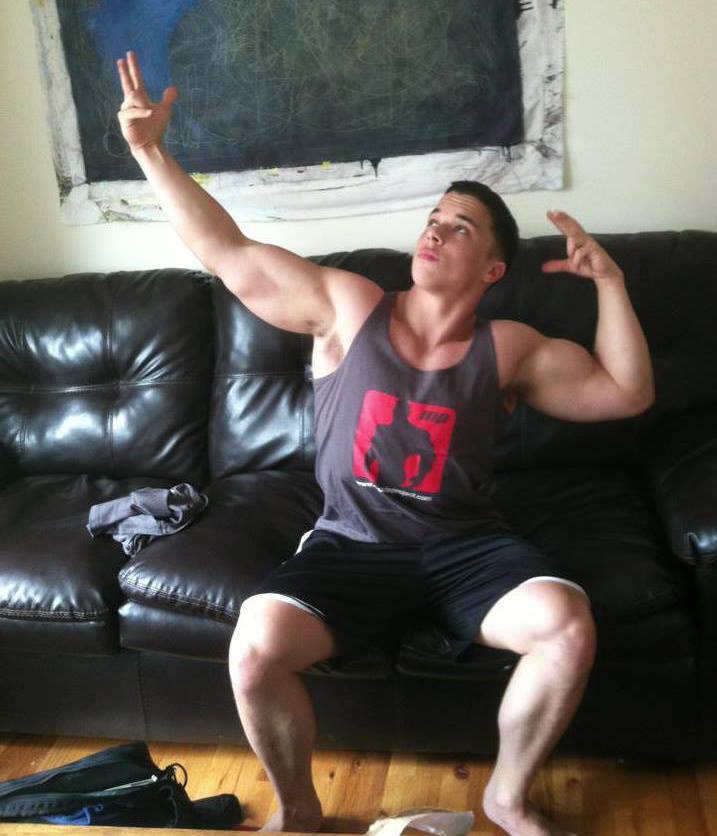
So if you ever have a question about a certain exercise, instead of looking through my entire channel, just simply YouTube search Nick Wright dumbbell rows, or Nick Wright squats. Nick Wright with whatever keyword you’re interested in learning about, and I guarantee you’ll find it on YouTube.
My Facebook page is the page to be on. That’s where I’m at. Very interactive. It’s simply NickWrightBodybuilding on Facebook.
AA: All right, perfect. Well, we’re going to have links right above this on the site. And Nick, I wanted to thank you. We here at Critical Bench really appreciate it. It was very informative and I’m sure our readers and yours are going to find this informative. So thank you so much for being on this, Nick.
NW: Thanks, Anthony. I appreciate it. And one more thing is, the new website is created and it will be up soon. It’s NWBLifestyle.com. So check that out, see what that’s all about.
AA: Excellent. Yeah, check it out. He’s also got a clothing line, so guys, you want to – fan of Nicks, make sure and grab one of his shirts. He’s got a lot of great, great t-shirts out there and clothing. So check that out as well, everyone.
NW: Thanks, Anthony. Thanks, Critical Bench. Appreciate it.
AA: All right, have a good one.
Start Building Massive Muscle Today By Subscribing to Nick Wright’s Youtube Channel
Connect With Nick Personally on His Facebook Fan Page by Clicking Here Now
Get Some NWB Muscle Building Apparel – Click Here Now
Interview Conducted by Anthony Alayon

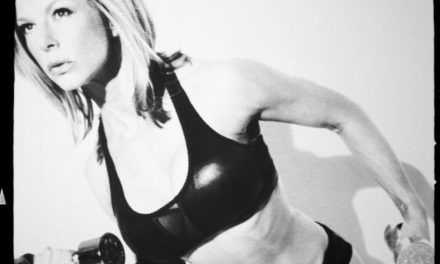
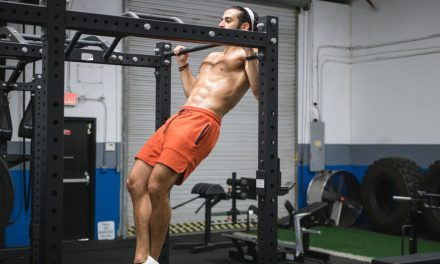
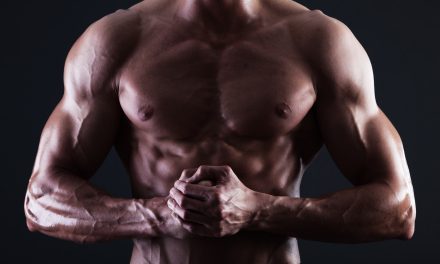


If some one needs to be updated with most recent technologies
afterward he must be pay a quick visit this
website and be up to date all the time.